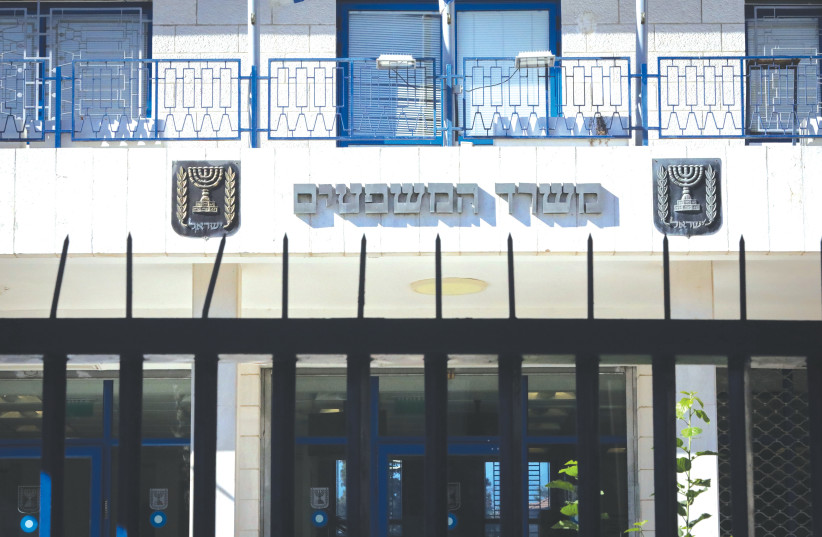There was a thought in the late 1940s and immediately after the founding of the State of Israel that the Zionist movement could now come to an end.
Started in the mid-1800s, the Zionist movement aimed to achieve two objectives. The first was to create a Jewish state that would provide a place of refuge for persecuted Jews. The second goal of the Zionist movement was to actualize Jewish rights to self-determination in their historic homeland, the Land of Israel. With the creation of the Jewish state, the Zionist movement had achieved its goals, and it was suggested that it could put itself to rest and concentrate on state-building.
Instead of evolving into a movement solely focused on improving the new Jewish state, Zionists began diverging into different focuses. One of them became defending the rights of the Jewish state in international forums. While Arab armies were trying to wipe the State of Israel off the face of the map through military means, the world had begun trying to use public discourse to delegitimize the Jewish state. Zionists have shifted from trying to convince world leaders to create a Jewish state to convincing the world of the Jewish state’s legitimacy.
Zionists have fought the legitimacy battle for 75 years, and it hasn’t really convinced those looking to delegitimize the Jewish state. Zionist arguments largely fall on deaf ears. Universities have become the base for anti-Israel ideology, and the streets of the world’s capitals host protests calling for an end to Zionism and Israel. Even the World Cup, the biggest sporting event of the year, featured anti-Israel protesters decrying the illegitimacy of the Jewish state.
Many Zionists fight the battle of Israel’s legitimacy, arguing over the big issues like Israel’s right to exist, the Jewish people’s right to a state, and the Israel Defense Forces’ right to defend itself against its enemies. But the day-to-day nitty-gritty of Israel’s issues tend to distract Zionists from their core values.

Instead of focusing on building and improving the Jewish state by taking an aggressive offensive stance, Zionists have digressed to playing defense. They have begun trying to invalidate every critique made against Israel. Instead of playing defense, Zionists must return to their core values and go back on offense to improve the Jewish state.
One of the prime values of Zionism was aliyah, or immigration. Moving to Israel has never been considered a lateral move for the Jewish people. The word “aliyah” means to “go up,” because moving to Israel has always been seen as an improvement for a Jewish person. The Zionist movement’s first calls were to Jews to relocate and go up to the Land of Israel to make their new homes.
UNFORTUNATELY, MANY Zionists take offense at calls for aliyah today. They somehow perceive a call to move to Israel as invalidating the Diaspora as a home for the Jewish people – but it is far from it. The call to move to Israel isn’t looking down at other places; it is a call to begin looking at the Land of Israel as the Diaspora Jews’ next home. It is time that aliyah was once again strongly encouraged by Zionists.
Along the lines of encouraging aliyah is the value of making Eretz Yisrael the home of all Jewish people – irrespective of their identity, gender, religious beliefs, etc. All too often, modern-day Israeli society is seen as a polarizing place as opposed to the early Zionist’s vision of a state that welcomes all Jews. It is time for today’s Zionists to redouble their efforts to erase any form of rejectionism and transform Israel into a place where all Jews feel at home.
To fully renew their Zionist vows, Jews must once again begin developing the Land of Israel into a home for individuals and businesses. When Zionists first began moving to Eretz Yisrael, they focused on draining the swamps, plowing the fields and building roads. It is time for Zionist pioneers to once again begin envisioning what an Israel at 100 years old should look like to attract more people and businesses. Developing the state requires developing the land in a smart way.
Zionists must also commit to building a state that is inclusive and acts as a light unto the nations of the world. Early Zionists and the founders of the State of Israel always understood that the Jewish state wasn’t going to serve just the Jewish people, but that it was going to be an exemplar of moral national policy and behavior.
This hasn’t been enough of a focus of Zionists. In the great distraction of playing defense, we forgot that just acting as we are designed to act is a sufficient enough offense to fulfill our mission of showing the world the way.
Playing defense against anti-Zionist false accusations hasn’t advanced Zionist objectives. It is time for modern-day Zionists to renew their Zionist vows and return to the goals and values early Zionists set for the Jewish nation. Instead of trying to invalidate every charge against Israel, Zionists should renew calls for aliyah, transform the State of Israel into a hospitable state for all Jews, and a place where commerce and individuals can thrive.
Lastly, Zionists must focus on ensuring that the Jewish state acts as an exemplar for the rest of the world. It is only by aggressively pursuing its objectives that Zionists can hope to achieve them.
The writer is a senior educator at numerous educational institutions. He is the author of three books and teaches Torah, Zionism and Israeli studies around the world.
